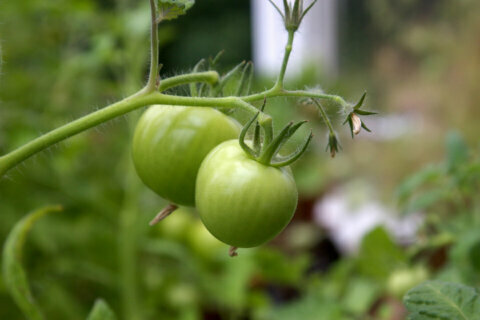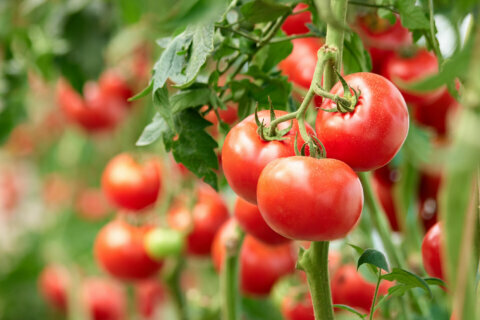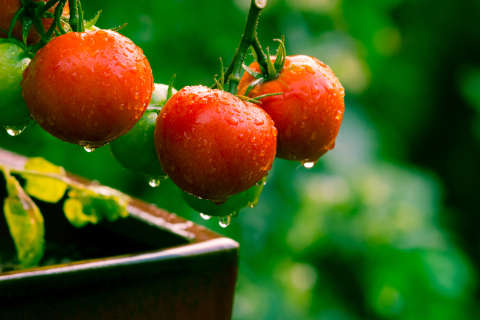
Skip ‘The Dirty Dozen’ in produce aisle
I learned in a recent report the surprising news that eating so-called “conventional produce” was strongly linked to heart disease as well as cancer, because of the pesticides sprayed on those foods.
To help you make use of this important finding, the Environmental Working Group annually publishes their “Dirty Dozen,” the foods where you’re better off buying organic.
Here’s the list for 2019, in order of the highest pesticide residues found: Strawberries had the highest amounts, followed by spinach, kale (yes, kale!), nectarines, apples, grapes, peaches, cherries, pears, tomatoes, celery and potatoes.
Some of these are obvious, especially the soft fruits such as strawberries and peaches, and foods known for a high use of pesticides, such as apples and grapes. But pears? Kale? Potatoes? Those were a real shock.
Seek out ‘The Clean Fifteen’
Every year the Environmental Working Group balances their “Dirty Dozen” list with their “Clean Fifteen” list of nonorganic foods that have the lowest levels of pesticides.
In order of cleanliness, the 2019 “winners” are: avocados, sweet corn, pineapples, frozen peas, onions, papayas, eggplant, asparagus, kiwi, cabbages, cauliflower, cantaloupes (which are actually called muskmelons or “netted” melons outside of the U.S.), broccoli, mushrooms and honeydew melons.
When you must buy “conventional” as opposed to organic, it might be wise to stick with the “Clean Fifteen.”
Take both lists to grocery store
We’ve been talking about the Environmental Working Group’s annual lists of the “Dirty Dozen” and the “Clean Fifteen,” information that allows you to make informed choices about what to only buy from the organic aisle (such as strawberries) and which ones are OK to buy that were grown “conventionally” (such as sweet corn, which is the best news I’ve heard in a long time).
Make a copy of each list or make a donation of $10 or more, and the Environmental Working Group will send you both lists on easy to carry wallet-sized cards.
Coldness ahead: Keep your garlic happy!
Steve in Montgomery County writes:
I planted my garlic before the first freeze. Now, after being hit by that stretch of warm weather, it’s sprouting. Will the “real” winter that’s coming mess with my garlic maturing?
The short answer is no, Steve.
Garlic planted in the fall will sometimes sprout before spring and sometimes not. The sprouts may look a little beleaguered after a night in the 20s but will be fine long term.
If you wish to make your garlic happier during freezing cold nights (like the ones to come Friday night through Thursday) mulch them with a protective inch or two of shredded leaves (not whole leaves) or pine straw, which should be available at local independent garden centers.
But no wood mulch; no mulch is better than wood mulch.
Plethora of perennials
Everybody’s talking about plants for pollinators, and that’s the cover feature on the new catalog from the highly regarded Bluestone Perennials, which offers what it calls a “pre-planned pollinator garden” of 15 plants designed to attract butterflies, bees and hummingbirds.
New offerings from Bluestone this year include “Sparkling Sapphires” Baptisia (“dazzling indigo blue flowers” on compact plants that reach 3-feet high); a Shasta Daisy named “Adorable” (“whose snowy white petals can be pulled off to reveal whether someone ‘loves you or loves you not'”); and 12 new varieties of showy coreopsis (my favorite is “Golden Stardust”).
Bluestone takes pride in their 100% recyclable packaging and 100% guarantee. Bonus: Order before Feb. 5 and get 10% off.
See it all or request a catalog at www.bluestoneperennials.com.
Mike McGrath was editor-in-chief of ORGANIC GARDENING magazine from 1990 through 1997. He has been the host of the nationally syndicated public radio show “You Bet Your Garden” since 1998 and WTOP Garden Editor since 1999. Send him your garden or pest control questions at MikeMcG@PTD.net.







